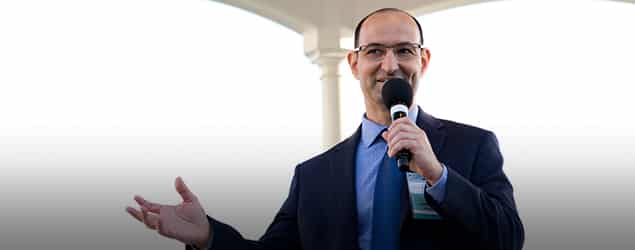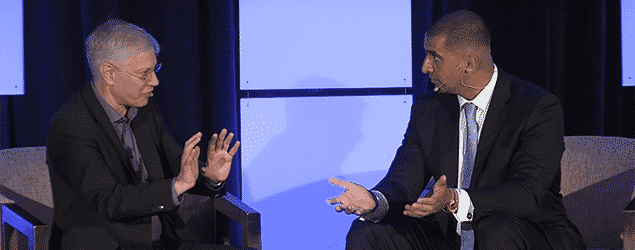Anniversary Chapters: Shoshana Milgram Discusses “The Spirit of Francisco d’Anconia”

“For some readers of Atlas Shrugged, Francisco d’Anconia becomes and remains their top favorite character,” said Shoshana Milgram. “He is irresistible. He is relished for his wit, for his swagger, for his courage, for his elegance. From the standpoint of pure literary pleasure, why wouldn’t I wish to write about Francisco, first and foremost?”
Milgram was talking about a chapter she contributed to Robert Mayhew’s book Essays on Ayn Rand’s “Atlas Shrugged” called “The Spirit of Francisco d’Anconia: The Development of His Characterization.” To celebrate the 60th publication anniversary Rand’s magnum opus, we’re talking to authors of various chapters in Mayhew’s compilation, in this case Milgram’s examination of what Rand’s early notes and drafts of Atlas Shrugged can tell us about the process of creating of this absorbing hero.
Spoiler alert: A full grasp of the characterization of Francisco d’Anconia requires the reader to re-evaluate, upon finishing the third part of the novel, the character’s actions and statements in the first two parts. A first-time reader may want to experience the novel’s revelations first-hand.
“From the start, Ayn Rand planned to make John Galt her main hero,” Milgram explained. “Francisco was to be one of the industrialists who joined the strike. But during the composition of the novel, as she began writing about him, she expanded his history to include an extensive and important past with Dagny Taggart. She also gave him much more to do, to the extent that he became, as she said, the ‘second lead.’
“When I looked at Ayn Rand’s editing of his dialogue, I noticed that she continually sharpened the wit and pungency of his statements, and she took care to make his assertions enigmatic without being downright dishonest. In other words, she wanted Francisco to be secretive, but not a liar. The reader is in the position of Dagny: trying to reconcile contradictions in his language and actions, when — as he himself tells us — contradictions do not exist.
“I wished to spend more time with the character who said: ‘There are no evil thoughts except one: the refusal to think.’”
Milgram got particular pleasure from addressing a question often raised by readers. “‘Isn’t it tragic,’ people will say, ‘that Francisco at the end of the novel is alone, with no romantic future?’ In the last two paragraphs of my chapter, I offer a speculation of a possible happy beginning for Francisco. The solution exists.”
Here’s an excerpt from Milgram’s chapter:
Francisco, as Ayn Rand said, came in ready-made. She improved him, enhanced him, but never had to develop him in the way she developed Dagny or Rearden or Roark. And once he arrived on the page, Francisco assumed tasks Ayn Rand had not originally assigned to him. He presented two challenges unique to his characterization. As the chief recruiter, he needed to explain, in some way, the idea of the strike, yet she had to edit his philosophical conversations in order not to give away too much too soon. As a man in disguise, moreover, he is creating a false impression about himself, but she edited his remarks in order to minimize bold-faced lies. As we have seen, Ayn Rand’s revisions are purposeful.
Shoshana Milgram is associate professor of English at Virginia Tech, specializing in narrative fiction and film. She has lectured on Rand at Objectivist and academic conferences, and has published on Rand, Hugo and Dostoevsky. She is editing the draft of her book-length study of Rand’s life to 1957.
If you find these perspectives intriguing, Essays on Ayn Rand’s “Atlas Shrugged” is available here, and more on Atlas Shrugged is available here.



